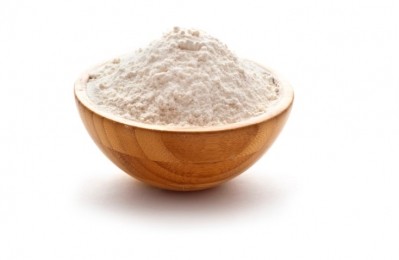Oat beta-glucan drink shows significant cholesterol lowering effect

Lifestyle modification is an important part of CVD (cardiovascular disease) prevention, particularly in the large proportion of the population with a low ten-year risk, but high lifetime risk. The NCEP (National Cholesterol Education Program) recommends consuming 5-10g of viscous soluble dietary fibre daily to lower LDL cholesterol.
Oats are an important source of soluble fibre, and it is well documented that the main component, beta-glucan, lowers LDL cholesterol. Regulatory agencies in Europe, the US and Canada have approved the use of blood cholesterol lowering claims for food products that provide 3g oat beta-glucan daily.
Systematic reviews and meta-analyses had previously found that oat beta-glucan was only two-thirds as effective at reducing LDL cholesterol when delivered in liquid format rather than solid foods. However, the authors of the present study speculated that this may have been because the oat beta-glucan used had lower molecular weights.
A previous study by the same research team supports this hypothesis. The study found that the ability of oat beta-glucan to lower LDL cholesterol was reduced by 50% when molecular weight was 220,000 g/mol compared with 2,200,000 or 530,000 g/mol.
Does molecular weight play a role?
The PepsiCo-funded study was therefore designed to evaluate the cholesterol lowering effect of consuming a beverage containing 1g of oat beta-glucan with a molecular weight of 2,000,000g/mol three times daily for four weeks.
The randomised, double-blind, placebo-controlled, parallel-arm design clinical trial was conducted by contract research organisation INQUIS Clinical Research. Participants were 191 healthy males and females aged between 18 and 65, with LDL cholesterol of between 3.00 and 5.00 mmol/L. 96 were assigned to the control group (rice milk drink containing no beta-glucan) and 95 to the test group (an oat product containing 1g beta-glucan). After four weeks of drinking the beverages three times daily, LDL cholesterol was measured. A reduction in mean LDL cholesterol of 5% or more was considered clinically significant.
LDL cholesterol did not change from baseline among the control group, but decreased among the test group. After four weeks, change from baseline least-squares-mean LDL cholesterol in the oat beta-glucan group was 0.207 mmol/L by mean. This equates to a reduction of 6%. In addition, CVD risk among the test group was reduced by 8%.
Dose-response relationship unexplained
The scientists said that this reduction in LDL was consistent with the estimates from two systemic reviews and meta-analyses. However, they said that these previous results showed inconsistencies and that the dose-response relationship still remains unexplained.
“It has been suggested that the cholesterol-lowering efficacy of oats is affected by the food matrix, oat processing and the amounts and types of macronutrients, micronutrients and phytochemicals contained in the test products. However, these are rarely measured,” they wrote.
They cautioned against concluding that oat beta-glucan administered in liquids has a lesser effect on cholesterol lowering as the two studies using high molecular weight beta-glucan in beverages had very different results.
Oat beta-glucan is thought to lower LDL cholesterol via multiple mechanisms, including reducing the intestinal reabsorption of bile acids and modifying colonic bacterial metabolism. The former mechanism may depend on the ability of oat beta-glucan to increase the viscosity of the intestinal contents, which, in turn, is determined by its molecular weight and concentration.
“The magnitude of this effect may depend on the ability of oat beta-glucan to increase the viscosity of the small intestinal contents, which is proportional to log(MW x C) where C is the concentration of beta-glucan in the small intestinal lumen,” wrote the researchers.
Therefore, they recommended further studies with a wide range of log(MW x C) variables to compare the effects of oat beta-glucans on LDL cholesterol in liquid and solid form.
Source: The Journal of Nutrition
Authors: Wolever TMS, Rahn M, Dioum EH, Spruill SE, Ezaragha A, Campbell JE, Jenkins AL, Chu YF
“An oat β-glucan beverage reduces LDL cholesterol and cardiovascular disease risk in men and women with borderline high cholesterol: a double-blind, randomized, controlled clinical trial”





